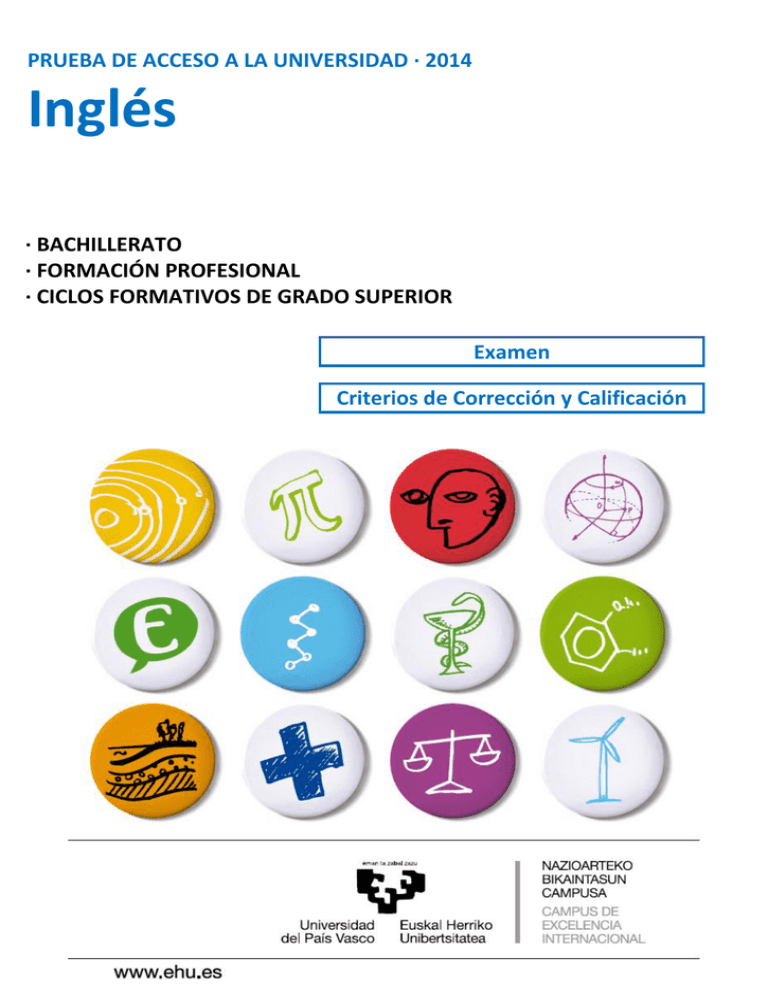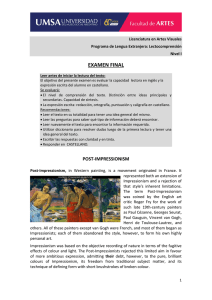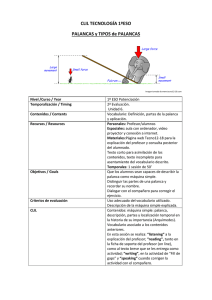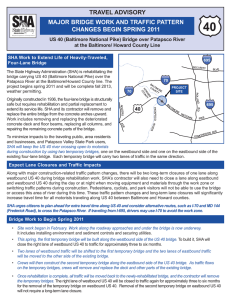Inglés
Anuncio

PRUEBA DE ACCESO A LA UNIVERSIDAD · 2014 Inglés · BACHILLERATO · FORMACIÓN PROFESIONAL · CICLOS FORMATIVOS DE GRADO SUPERIOR Examen Criterios de Corrección y Calificación UNIBERTSITATERA SARTZEKO PROBAK PRUEBAS DE ACCESO A LA UNIVERSIDAD 2014ko EKAINA JUNIO 2014 INGELESA INGLÉS Choose between option A and option B. Specify the option you have chosen. Please, don’t forget to write down your code on each of your answer sheets. OPTION A WHY DO YOUNG READERS PREFER PRINT TO E-BOOKS? A recent survey by Voxburner, a British marketing strategy agency, has suggested that 62% of 16- to 24-year-olds prefer reading printed books to e-books. The research is especially interesting, as it reflects the opinions of people that are as dependent on mobile phones and laptops as they are on oxygen and water. 14 The two main reasons for preferring print are value for money and an attachment to physical books. In fact, more than 25% of the participants in the study think that ebooks are priced too high. They explained that, if you buy a book, you can share it with as many friends as you like. On the other hand, if you get it in an electronic format, you would have to lend your e-reading device out in order for anyone else to read it. 20 The top-rated emotional comments for preferring physical to digital products are "I like to hold the product", "I like the smell" and "I like the packaging". However, if traditional books and e-books contain the same content, aren't they basically the same thing? The 20th century philosopher Jacques Derrida thought so. In his book Paper Machine, he described the transition his generation had seen from the pen to the introduction of the electronic typewriter and the computer. According to him, the ebook is just a phase in the evolution of reading technologies. Following his argument, e-books are not less natural than the printed ones, but people may feel that way because paper books have always been around. Considering that millions of people read and generate billions of words per day on computers across the world, why can't young people come to terms with e-books? They read the news, their mail, advertisements and text messages in a digital format on a daily basis. In fact, they belong to a generation umbilically linked to their mobiles and laptops so, why are they so resistant to e-books? UNIBERTSITATERA SARTZEKO PROBAK PRUEBAS DE ACCESO A LA UNIVERSIDAD 2014ko EKAINA JUNIO 2014 INGELESA INGLÉS I.- Answer questions 1-4 according to the information given in the text. WRITE COMPLETE SENTENCES USING YOUR OWN WORDS WHENEVER POSSIBLE. DO NOT COPY FROM THE TEXT (4 marks) 1. 2. 3. 4. What is the age range of the participants in the study? Why is the study so remarkable? According to some of the participants, what is the way to share an e-book? How often do young people read digital texts? II.- Are these statements True or False? Justify your answers based on information from the text, rewriting the original sentences in your own words or quoting properly (2 marks) 14 1. Derrida’s generation witnessed the changes from handwriting to typing and word processing. 2. According to Derrida, paper books are as artificial as e-books. III.- Find the words or expressions in the text that mean (1 mark) 20 1. small computers designed to be easily carried: 2. the box or wrapping in which a product is offered for sale: 3. stage, time, step: 4. connected, tied, attached: IV.- Write a composition of about 130 words on one of these topics. Specify your option (3 marks) 1. “For leisure reading, I find print to be an archaic way to move stories and information. For research and school, however, sometimes print is still superior because it is easier to annotate using ink or pencil”. Do you agree or disagree? Explain your opinion about it. 2. “Last Friday I lost my mobile phone.” Write a story starting with this sentence. UNIBERTSITATERA SARTZEKO PROBAK PRUEBAS DE ACCESO A LA UNIVERSIDAD 2014ko EKAINA JUNIO 2014 INGELESA INGLÉS OPTION B ROME BANS LOVERS’ LOCKS TO PROTECT BRIDGE Thousands of ‘love locks’ fixed to an ancient bridge in Rome, the Italian capital, have been cut off to save the structure from damage. For years teenage lovers have written their initials on the love locks and attach them to the bridge. They have then sworn eternal love for each other and thrown the key into the Tiber river below. The habit has also become popular at other bridges around the world, particularly in Paris. 14 The love lock idea was first inspired by characters in the 2006 Italian teenage novel I want you, written by Federico Moccia. In the book, a young couple places a bicycle lock around a lamp post on the Milvian bridge and throws the key into the Tiber. The famous bridge was first built in 206 BC and is one of the oldest in Rome. It was the scene of an important Roman battle in AD 312. 20 In 2007 a lamp post on the ancient bridge almost collapsed under the weight of the love locks and special posts were put up for them. But last month officials said that enough was enough. “We decided to remove the love locks to restore the decorum of the bridge,” said the local area president, Gianni Giacomini. Since the habit started, the residential neighbourhood has become a busy centre for late-night bars and city officials said that 86% of local people wanted the locks to go. They promised to give the love locks a place in a Rome museum and said they would create a spot near the bridge where locks could be left in the future. “The bridge will be guarded day and night to stop more locks being attached,” said local public official Stefano Erbaggi. However, Federico Moccia is unhappy about the move. “The removal of the locks is inconsiderate,” he told the newspaper La Repubblica. “Rome is giving Paris the ‘bridge of love’ tradition which was born here and should stay here.” UNIBERTSITATERA SARTZEKO PROBAK PRUEBAS DE ACCESO A LA UNIVERSIDAD 2014ko EKAINA JUNIO 2014 INGELESA INGLÉS I.- Answer questions 1-4 according to the information given in the text. WRITE COMPLETE SENTENCES USING YOUR OWN WORDS WHENEVER POSSIBLE. DO NOT COPY FROM THE TEXT (4 marks) 1. 2. 3. 4. Why have love locks been cut off from a bridge in Rome? Who inspired the love locks idea? Why did the authorities finally decide to remove the locks last month? Where will love locks be left in the future? II.- Are these statements True or False? Justify your answers based on information from the text, rewriting the original sentences in your own words or quoting properly (2 marks) 1. The love locks are not in the Milvian bridge now. 2. Federico Moccia is pleased about the removal of the love locks. 14 III.- Find the words or expressions in the text that mean (1 mark) 1. a tendency or disposition to act in a particular way: 2. fell down suddenly: 3. a district where people live: 4. lacking in care or thought for others; thoughtless: 20 IV.- Write a composition of about 130 words on one of these topics. Specify your option (3 marks) 1. Do you know of any famous places that need protection from the public? If so, which are those places and why do you think they need special protection? 2. There are romantic traditions all over the world by which couples express their love. St. Valentine’s Day is one of the most popular. What is your opinion about those celebrations? UNIBERTSITATERA SARTZEKO PROBAK PRUEBAS DE ACCESO A LA UNIVERSIDAD CRITERIOS DE CORRECCIÓN Y CALIFICACIÓN ZUZENTZEKO ETA KALIFIKATZEKO IRIZPIDEAK INGLÉS I.- Answer questions 1-4 according to the information given in the text. USE YOUR OWN WORDS. DO NOT COPY FROM THE TEXT (4 marks) En esta sección se intenta comprobar la competencia en comprensión lectora y la competencia en expresión escrita por parte del/de la estudiante, a partir del análisis de un texto genérico y respondiendo a cuatro preguntas de tipo general (whquestions). Las respuestas serán de producción propia en cuanto a la expresión y el contenido se basará en las ideas vertidas en el texto. Se valorará el ejercicio con un máximo de 4 puntos. Cada una de las preguntas valdrá 1 punto, asignándose 0.5 puntos a la comprensión y 0.5 a la expresión. Si el/la alumno/a, ignorando las instrucciones del ejercicio, responde a la pregunta copiando literalmente del texto sólo será valorado con 0.25 puntos por respuesta. 14 II.- Are these statements True or False? Justify your answers based on information from the text, rewriting the original sentences in your own way or, at least, quoting properly. (2 marks) 20 A la respuesta TRUE ó FALSE debe acompañar una justificación adecuada. El alumnado podrá justificar su respuesta con sus propias palabras tomando evidencia del texto o también citando adecuadamente la frase del texto. Las frases de la respuesta deben ser completas o, en su caso, debidamente enlazadas para insertar correctamente lo entrecomillado. No se valorará un escueto TRUE ó FALSE. Cada respuesta completa será valorada con 1 punto y, por tanto, la valoración máxima del ejercicio será de 2 puntos. III.- Find the words or expressions in the text that mean (1 mark) En este ejercicio el/la alumno/a demostrará su competencia léxica. Se proporcionan cuatro palabras, definiciones, expresiones, etc. y el estudiante debe encontrar la palabra o expresión que tenga ese significado en el texto. Cada respuesta correcta tiene una puntuación de 0.25 y las cuatro respuestas correctas suman, por tanto, 1 punto. IV.- Write a composition of about 130 words on ONE of the following two topics. Specify your option. (3 marks) En esta sección se pretende medir la capacidad del/de la estudiante para estructurar sus ideas y darles la expresión adecuada en inglés. El contenido debe ajustarse al tema elegido de entre los dos propuestos. A modo indicativo se podría valorar el uso correcto de estructuras gramaticales y sintácticas (1 punto), la riqueza y precisión léxicas (1 punto) y los aspectos textuales y comunicativos (1 punto). Si el/la alumno/a escribe menos de 80 palabras, se le penalizará descontándole 0.5 puntos de la puntuación total del ejercicio. Si, por el contrario, su escrito supera las 200 palabras, la penalización será de 0.25 puntos. UNIBERTSITATERA SARTZEKO PROBAK PRUEBAS DE ACCESO A LA UNIVERSIDAD CRITERIOS DE CORRECCIÓN Y CALIFICACIÓN ZUZENTZEKO ETA KALIFIKATZEKO IRIZPIDEAK OPTION A I.- Answer questions 1-4 according to the information given in the text. WRITE COMPLETE SENTENCES USING YOUR OWN WORDS WHENEVER POSSIBLE. DO NOT COPY FROM THE TEXT (4 marks) 1. What is the age range of the participants in the study? The participants are from 16 to 24 years old. (p.1) 2. Why is the study so remarkable? The study is so remarkable because it shows the opinions of people that are addicted to electronic devices. (p.1) 14 3. According to some of the participants, what is the way to share an e-book? According to some of the participants, if you want to share an e-book with somebody, you have to let them borrow your e-reader device. (p.2) 4. How often do young people read digital texts? They read digital texts every day. (p.5) II.- Are these statements True or False? Justify your answers based on information from the text, rewriting the original sentences in your own words or quoting properly. (2 marks) 20 1. Derrida’s generation witnessed the changes from handwriting to typing and word processing. This sentence is true. The text states that Derrida “described the transition his generation had seen from the pen to the introduction of the electronic typewriter and the computer” in a book called Paper Machine (p.4). 2. According to Derrida, paper books are as artificial as e-books. This is a true sentence. The text states, “following his [Derrida’s] argument, e-books are not less natural than the printed ones” (p.4).’ III.- Find the words or expressions in the text that mean (1 mark) 1. 2. 3. 4. small computers designed to be easily carried: laptops (p.1, l.4) / (p.5, l.5) the box or wrapping in which a product is offered for sale: packaging (p.3, l.2) stage, time, step: phase (p.4, l.4) connected, tied, attached: linked (p.5, l.5) UNIBERTSITATERA SARTZEKO PROBAK PRUEBAS DE ACCESO A LA UNIVERSIDAD CRITERIOS DE CORRECCIÓN Y CALIFICACIÓN ZUZENTZEKO ETA KALIFIKATZEKO IRIZPIDEAK OPTION B I.- Answer questions 1-4 according to the information given in the text. WRITE COMPLETE SENTENCES USING YOUR OWN WORDS WHENEVER POSSIBLE. DO NOT COPY FROM THE TEXT. (4 marks) 1. Why have love locks been cut off from a bridge in Rome? Love locks have been cut off because the elements of the bridge to which they were fixed could be damaged. (p. 1) 2. Who inspired the love locks idea? The idea was inspired by the couple who appears in a famous novel written by Federico Moccia. (p. 2) 14 3. Why did the authorities finally decide to remove the locks last month? The authorities made the decision of removing the locks in order to return the appropriate image of the bridge and of the residential neighbourhood. (p. 3) 20 4. Where will love locks be left in the future? In the future, city officials will provide a place for love locks near the bridge. The ones already taken from the bridge will be placed in a Rome museum. (p. 4) II.- Are these statements True or False? Justify your answers based on information from the text, rewriting the original sentence in your own words or quoting properly. (2 marks) 1. The love locks are not in the Milvian bridge now. This sentences is true. The text states that last month officials “decided to remove the love locks to restore the decorum of the bridge.” (p 3, lines 3-4). 2. Federico Moccia is pleased about the removal of the love locks This sentence is false. The text states that “Federico Moccia is unhappy about the move.” (p. 4, lines 2-3). III.- Find the words or expressions in the text that mean (1 mark) 1. 2. 3. 4. tendency or disposition to act in a particular way: habit (p.1, l. 5) fell down suddenly: collapsed (p. 3, l. 1) a district where people live: neighbourhood (p.3, l.5) lacking in care or thought for others; thoughtless: inconsiderate (p.4, l.3) 1 Coherence and cohesion The text is very well-structured and highly cohesive. 1 The text is cohesive and properly structured. 0,6 The text is basically cohesive and structured 0,5 The text is only partially structured and/or cohesive. 0,5 0,3 The text features serious structural and cohesive problems. 0,3 The text is neither structured nor cohesive. 0 0 0,8 14 0,8 Lexical richness Very adequate vocabulary and idiomatic expressions. Vocabulary and idiomatic expressions are generally adequate. Vocabulary and idiomatic expressions are generally adequate but sometimes choices are not completely appropriate. Vocabulary and idiomatic expressions are only partially adequate. Vocabulary and idiomatic expressions are frequently inappropriate. Vocabulary and idiomatic expressions are not adequate. 20 0,6 1 Overall correction There are basically no significant mistakes. 0, 8 There are very few mistakes and they do not affect text comprehension. 0, 6 There are some mistakes that may occasionally affect text comprehension. 0, 5 Several mistakes, some of them clearly affecting text comprehension. 0, 3 Numerous mistakes that clearly affect text comprehension. 0 A huge number of errors that makes text comprehension impossible. 1 Riqueza léxica El vocabulario y las expresiones idiomáticas son muy adecuados 0,8 El texto está bien cohesionado y estructurado 0, 8 El vocabulario y las expresiones idiomáticas son adecuados en general 0,8 0,6 El texto está suficientemente cohesionado y estructurado 0, 6 El vocabulario y las expresiones idiomáticas son adecuados en general pero, en algún caso, hay opciones no muy adecuadas. 0,6 0,5 El texto cohesionado y/o estructurado sólo en parte 0, 5 El vocabulario y las expresiones idiomáticas son adecuados sólo en parte. 0,5 0,3 El texto muestra grandes problemas de cohesión y/o estructura 0, 3 El vocabulario y las expresiones idiomáticas son a menudo inadecuados 0,3 El texto no está cohesionado ni estructurado 0 El vocabulario y las expresiones idiomáticas no son adecuados. 0 0 20 1 14 Coherencia y cohesión El texto está muy bien cohesionado y estructurado 1 Corrección Hay muy pocos errores, no significativos Hay pocos errores que no afectan a la comprensión del texto Hay algunos errores que, en general, no afectan a la comprensión del texto (alguno puede que sí) Bastantes errores, y/o errores que afectan en gran medida a la comprensión del texto Muchos errores, y/o errores que afectan en gran medida a la comprensión del texto Muchísimos errores que imposibilitan la comprensión del texto


